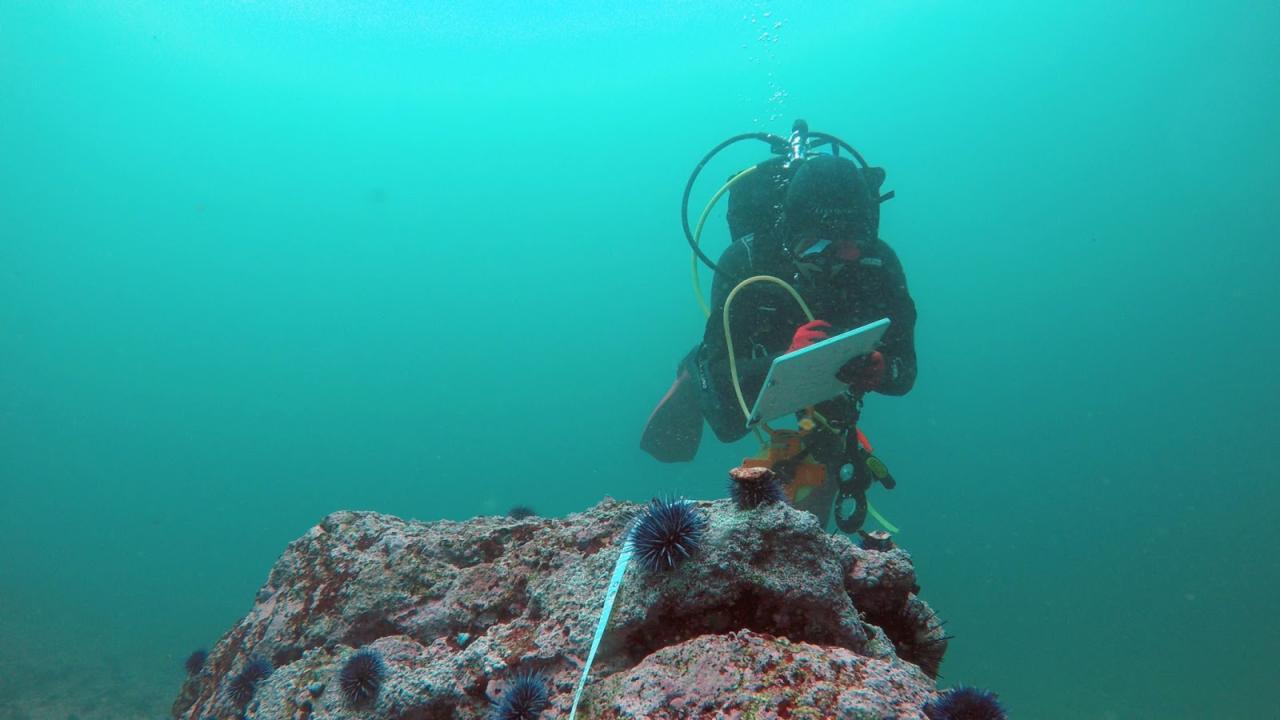
UC Davis leads a $1.6 million grant on kelp restoration in California
Researchers at UC Davis’ Coastal and Marine Sciences Institute (CMSI), in collaboration with UC Santa Cruz and Humboldt State University, recently received a joint $1.6 million grant from the National Science Foundation to understand how ecological restoration might incorporate future climate change impacts. The grant is focused on restoration of kelp forests in northern and central California, where the combination of extreme temperatures and a disease outbreak in 2013-2016 led to declines in kelp exceeding 90% in some places. Kelp form underwater forests that support an array of species, fisheries, and associated livelihoods in California coastal communities, which likewise have experienced significant impacts, including a federal fishery disaster declaration in 2019.
“Climate change means that restoration management has a moving target, where a major challenge is how restoration might help promote adaptation to future climate change”, says PI Marissa Baskett, “but what ‘adaptive’ means can be in the eye of the beholder: it could mean buffering to maintain what’s there, or it could mean transforming into something new that’s more likely to persist under climate extremes.” The research team will study what determines what types of adaptation can occur, which will provide managers with clearer pathways to different adaptive goals on a spectrum from maintenance to transformation. These insights will inform current and future restoration efforts in California’s kelp forests and the associated coastal communities whose livelihoods depend on marine resources.
The multidisciplinary research team includes experts in anthropology, sociology, economics, political science, ecology, and oceanography, including five faculty affiliated with CMSI at UC Davis. “Restoration under climate change, including in California’s kelp forests, requires an understanding of how both the ecosystem and people respond to extreme events and interact with each other,” says co-PI Michael Springborn. “With an exciting team of experts working across all of these different pieces, we can identify how characteristics in each piece interact to allow for a more nimble response to future extreme temperatures.”
NSF public abstract:
https://www.nsf.gov/awardsearch/showAward?AWD_ID=2108002
Research team:
Marissa L. Baskett, Department of Environmental Science and Policy, University of California, Davis
Tyler Scott, Department of Environmental Science and Policy, University of California, Davis
Mike Springborn, Department of Environmental Science and Policy, University of California, Davis
John Largier, Department of Environmental Science and Policy, University of California, Davis
Brian Gaylord, Department of Evolution and Ecology, University of California, Davis
Carrie Pomeroy, Institute of Marine Sciences, University of California, Santa Cruz
Mark Carr, Department of Ecology and Evolutionary Biology, University of California, Santa Cruz
Sean Craig, Department of Biological Sciences, Humboldt State University
Laurie Richmond, Department of Environmental Science and Management, Humboldt State University
